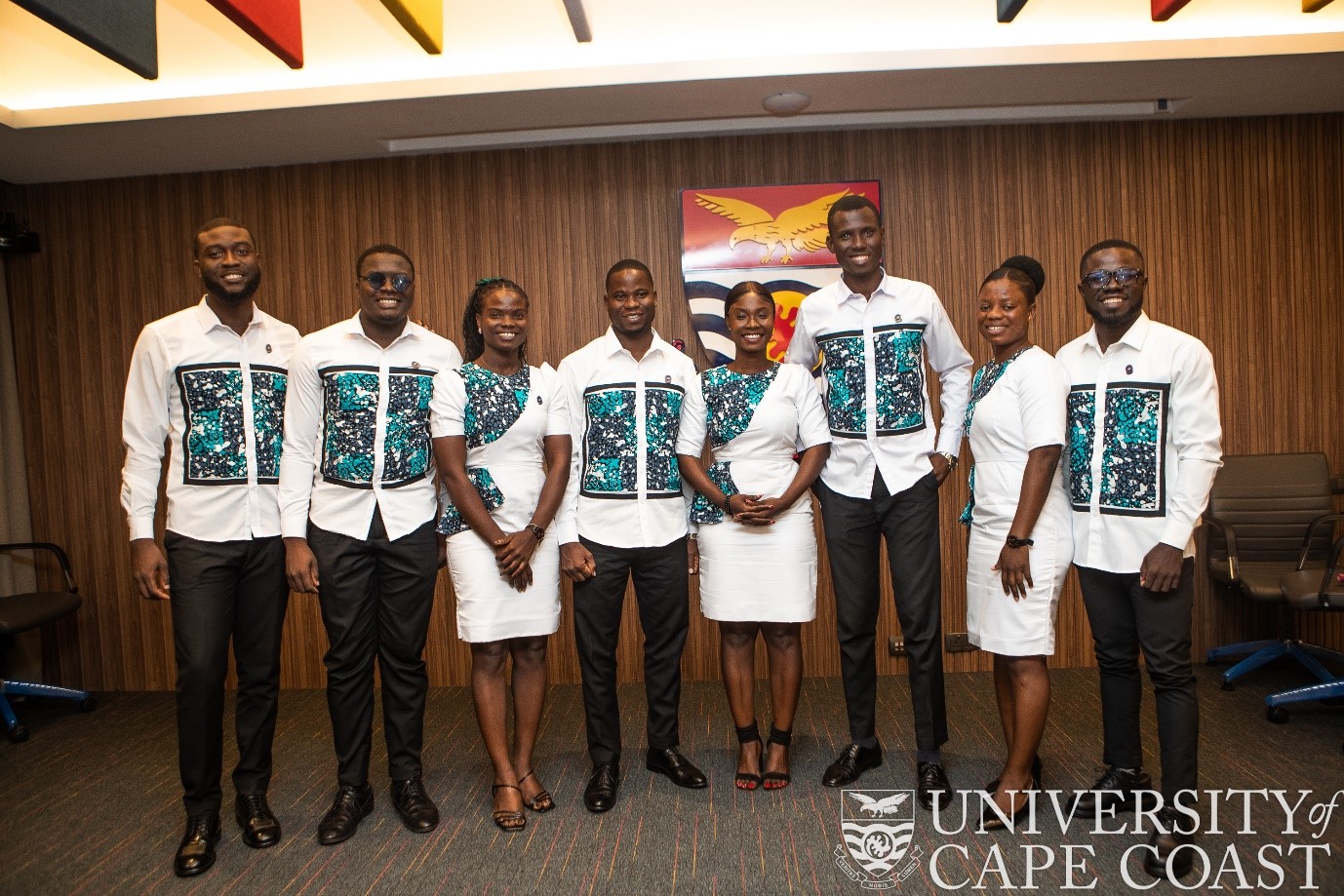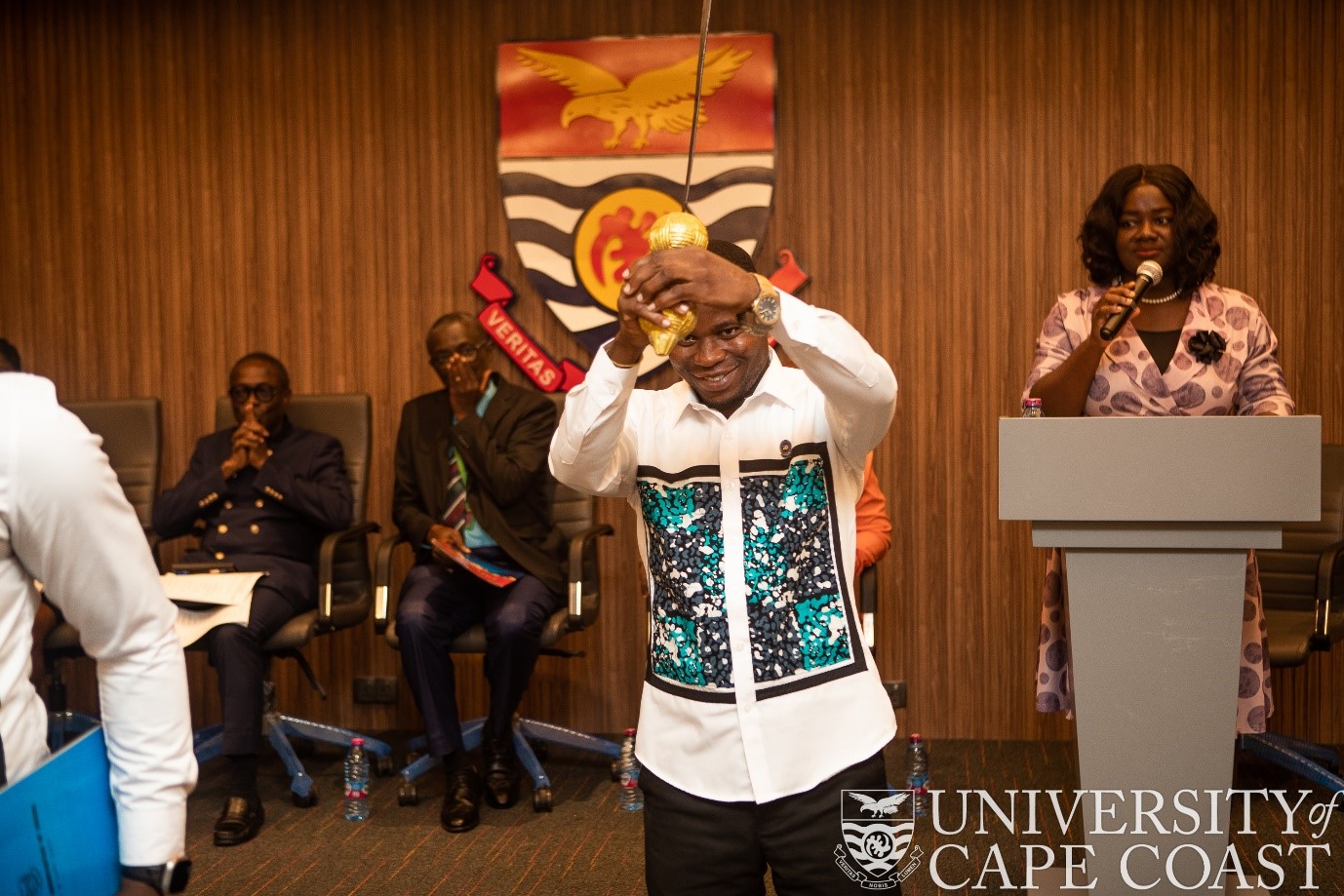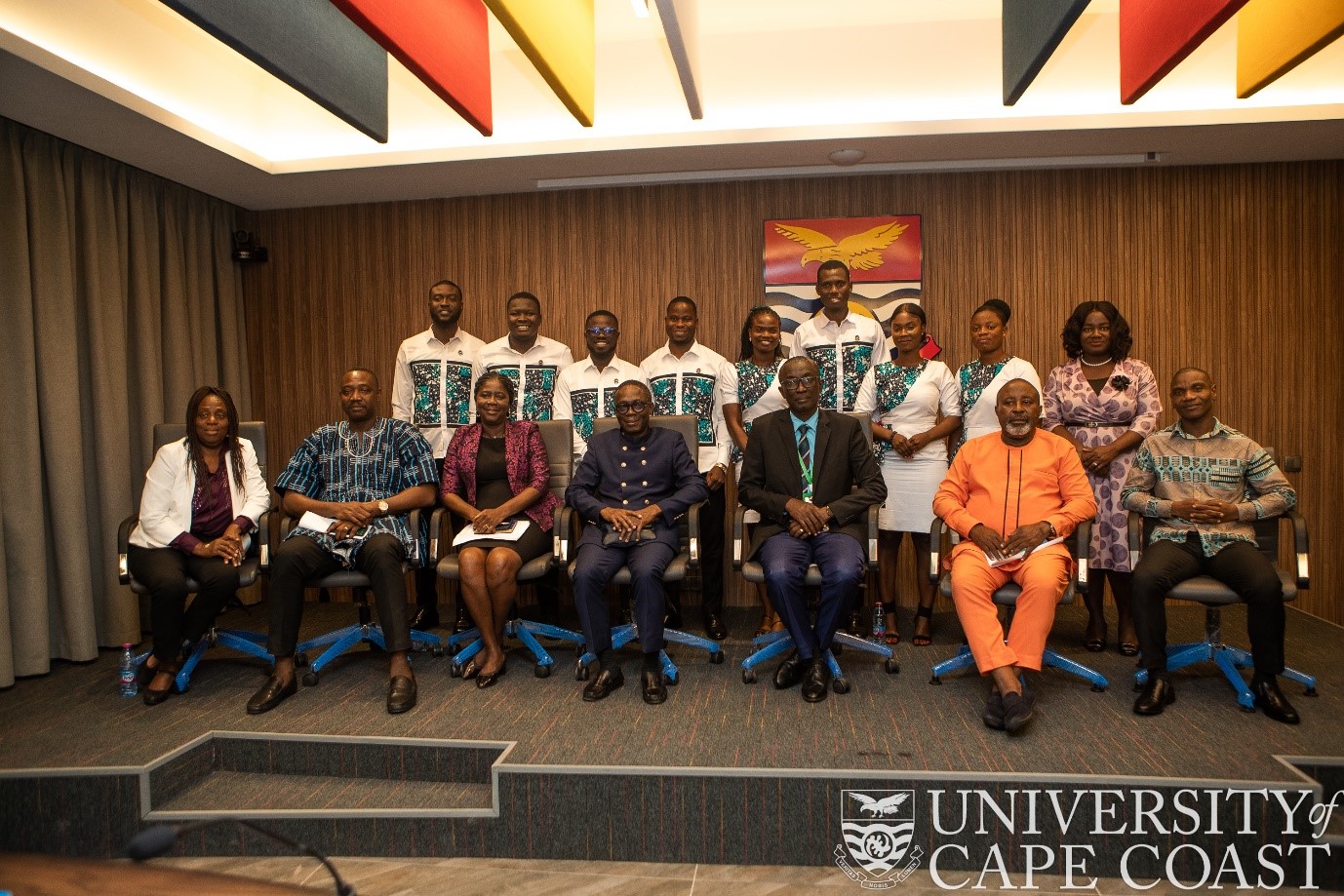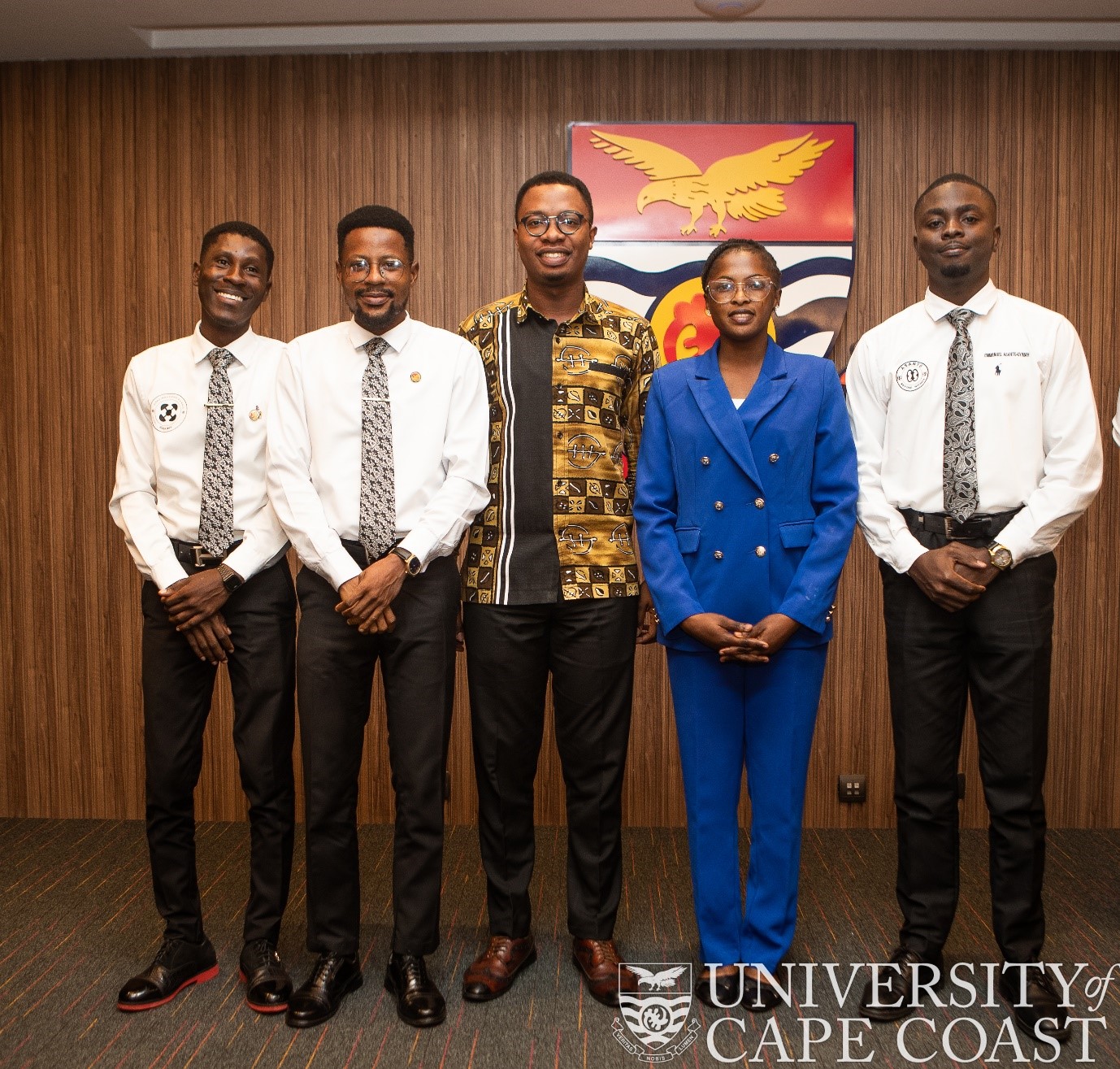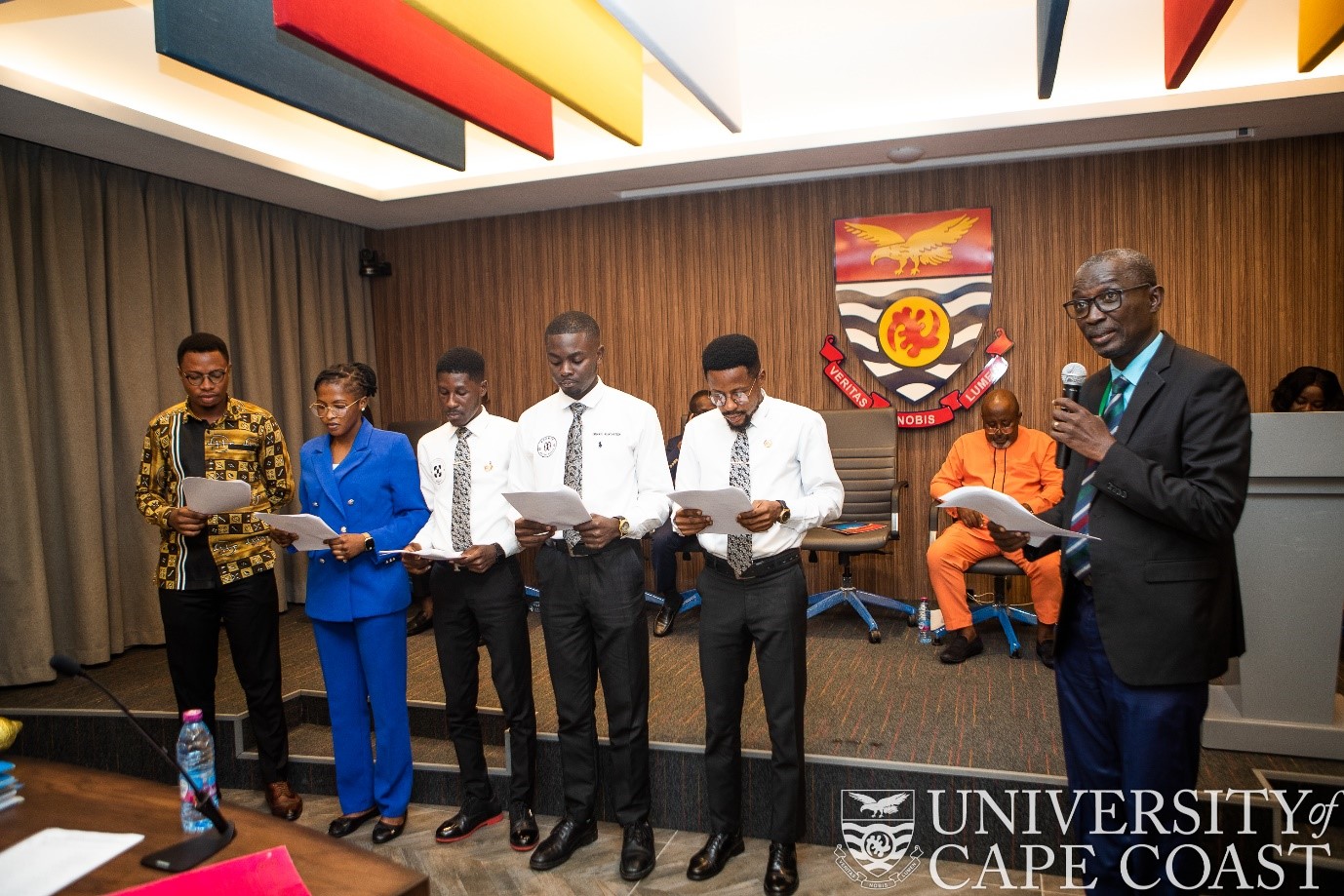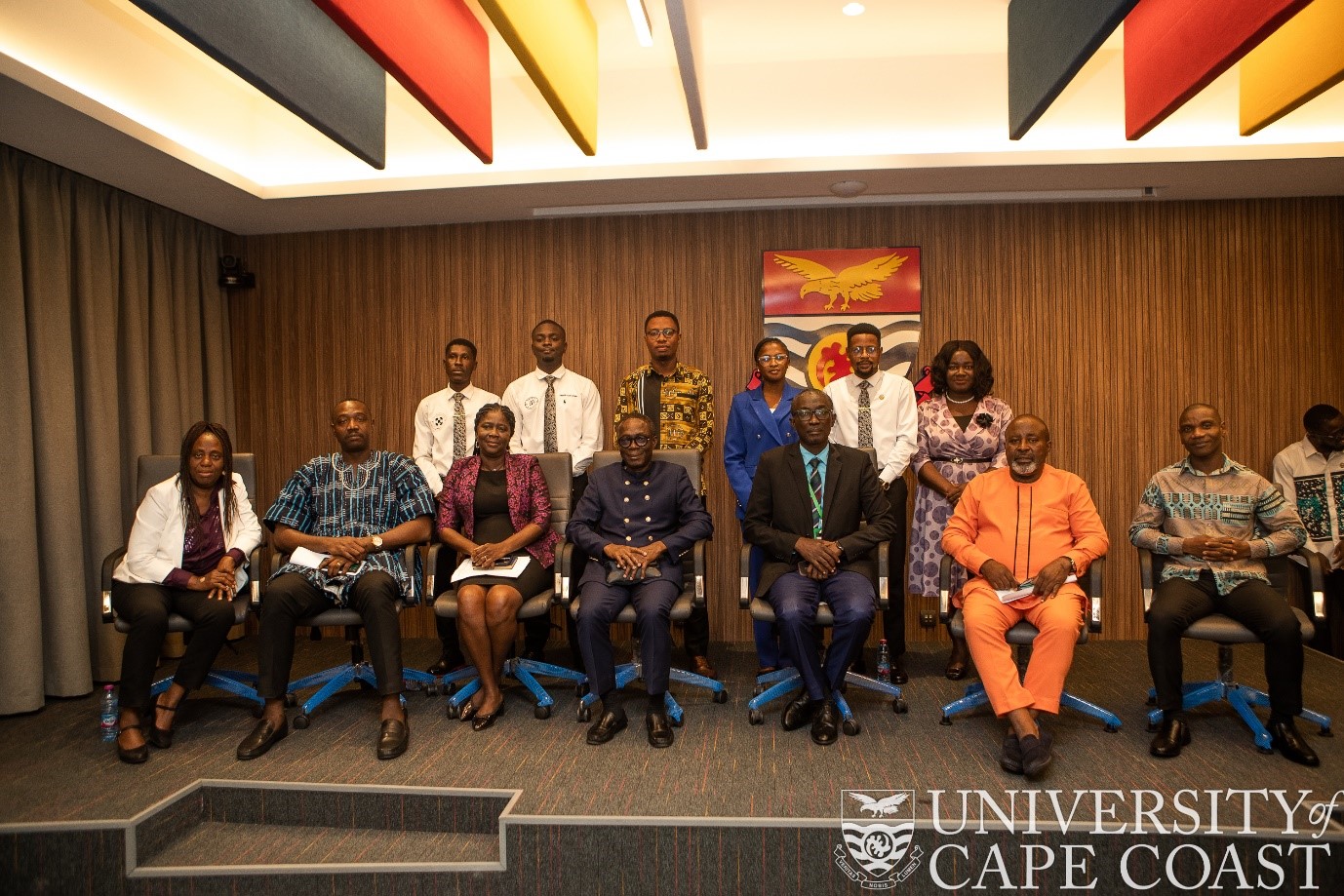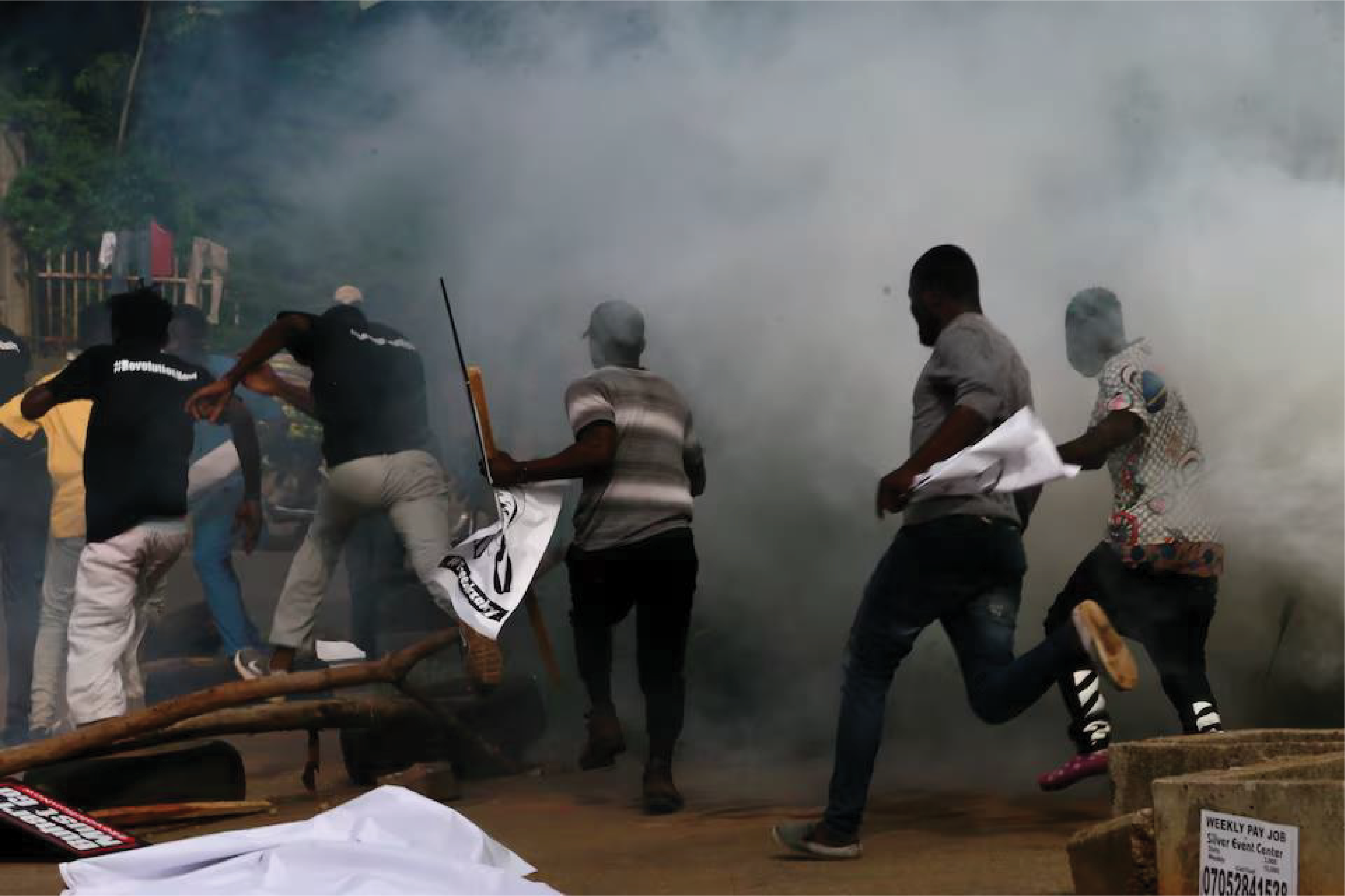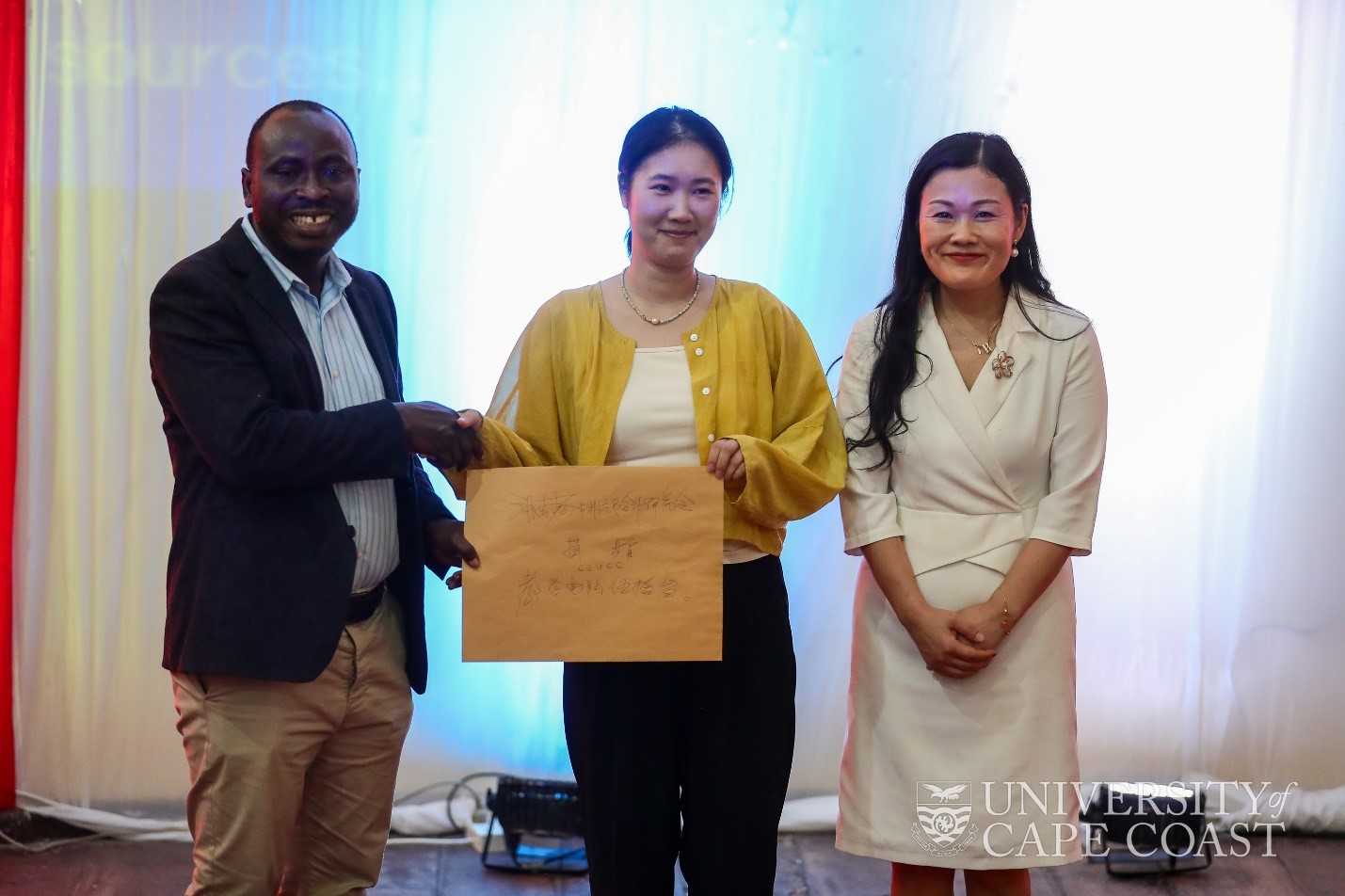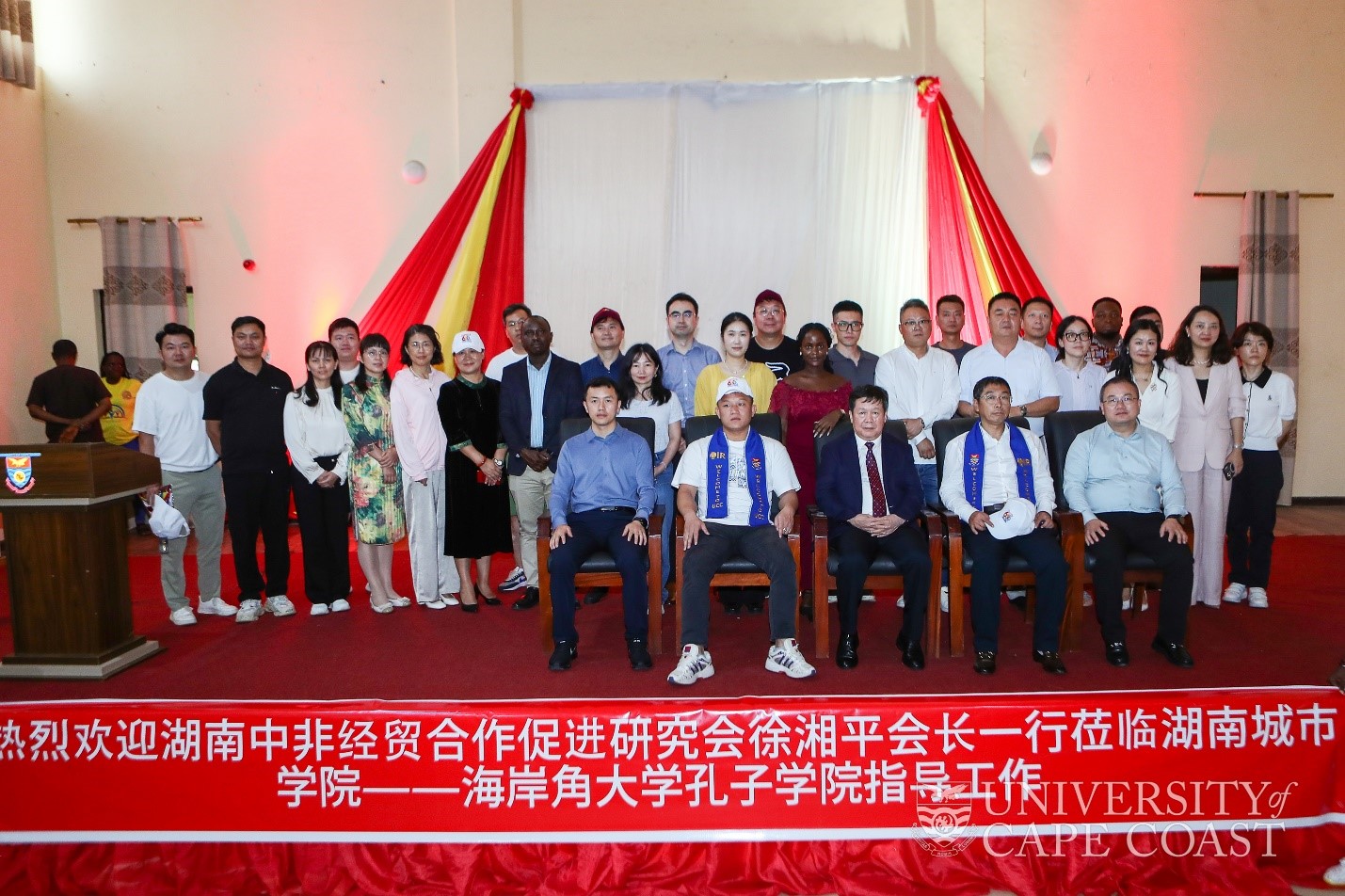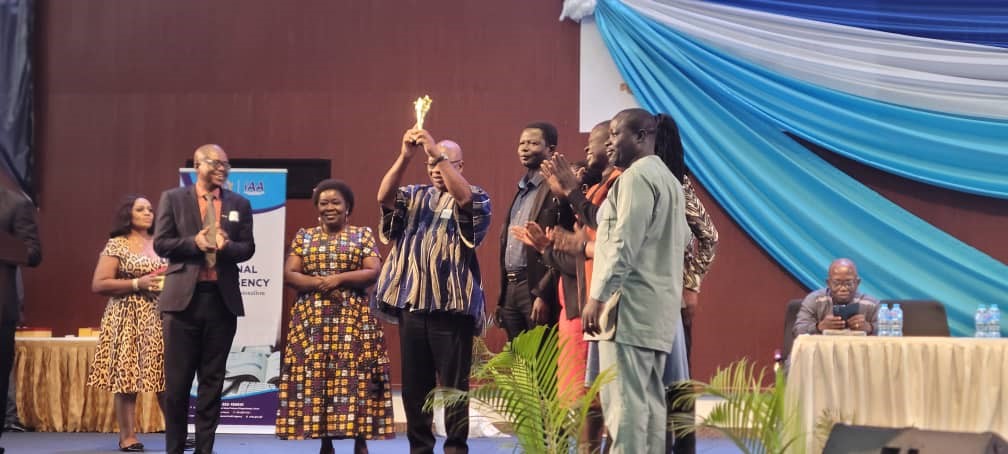The executives of the Graduate Students' Association of Ghana (GRASAG) of the University of Cape Coast (UCC) have been inducted into office to steer the affairs of the association for one academic year.
The eight-member executives are Robert Ipiin Gnankob - President, Felicia Adams; Vice President; Nina Grant, Secretary; Samuel Kwame Otoo, Financial Secretary; Maxwell Adu Yeboah, Organising Secretary; Augustina Tambile, Women's Commissioner; Emmanuel Akwasi Agyei, Treasurer and Reuben Kwadzo Gblonyah, Public Relations Officer.
Mr. Robert Ipiin Gnankob, in his inaugural address, expressed gratitude for the opportunity to serve his fellow students. He pledged that the team would work hard to ensure that the concerns of graduate students were addressed.
GRASAG President, Robert Ipiin Gnankob, holding high the sword of authority
He pledged the association's cooperation with the management of the University towards the common good of UCC. He also promised to represent the student body with integrity, dedication and transparency.
The immediate past president of GRASAG-UCC, Mr. Kwabena Agyepong, speaking at the ceremony, said there was a need for unity of purpose and understanding to advance the cause of the Association.
He pledged the support of the past executives to the success of the new administration and entreated all graduate students to provide the new officers with the maximum support.
The Vice-Chancellor, in a brief speech, commended the new executives on their election.
He urged the newly-inducted executives to create a cordial atmosphere between them and management.
Vice-Chancellor of UCC, Prof. Nyarko Boampong (front row middle) with some UCC officials in a group photo with the new executives
Prof. Boampong encouraged students to continue to take their academics seriously and never lose sight of their primary aim of coming to the university.
The Acting Registrar, Mr. Ebenezer Aggrey administered the oath of office to the new executives.
Source: Documentation and Information Section-UCC

